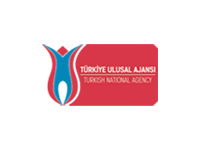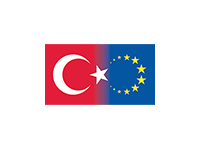Adult education is a vital part of the European Commission’s lifelong learning policy; digital competences are similarly positioned as one of the 8 key competences for lifelong learning. This importance is due to the “development and dissemination of the supply of high-quality learning opportunities for adults, by providing flexible learning recommendations tailored to their learning needs, such as digital learning applications, and by validating skills acquired through informal and non-formal learning, and for adults with low skills, knowledge and competences, such as their literacy, establishing appropriate pathways that enable them to increase their numeracy and digital competencies and supporting access to them” has been stated among the issues to be prioritized in the field of adult education. As the spread of information technologies has transformed society into a network society; however, in this new model of society, inequality persists over usage skills, and the widespread access to digital technologies has brought about a different division: the division created by the ability to use. This type of division is positioned as an important variable in terms of the risks posed by digital technologies. The most popular of these risks can be expressed as follows:
- Issues involving basic network security
- Misuse of personal data
- Online Fraud and identity theft
- Malware
- Getting hacked
- Fishing / Baiting
- Cyberbullying
- Crime against intellectual property
- Online Predators/Hunters
- Low Self-Esteem
- Inability to express oneself
- Inability to socialize
- Weakening of family ties
- Encouragement to bad habits
- Inability to access correct information
The broad list above is not exhaustive, and some of them are evolving towards a more dangerous and criminal stage, from promoting addictions that cause physical and psychological damage to facilitating access to substances related to these addictions. Some of them constitute the types of crimes against property and private life, and they evolve as the types of crimes against information systems such as hacking of social media and game characters and accessing personal phones and computers. In the digital world, responsibilities such as possibilities and risks are increasing at a similar pace. Perhaps at the forefront of these responsibilities is the function of parenting, or rather “raising”, which has undergone a great transformation in today’s digital and data-driven society. The active use of digital tools has opened up a whole new debate about which side of the digital parenting spectrum would be most beneficial for parents.
Even if all of these risk factors are associated with social capital inadequacies of all digital natives or immigrants, of digital environments:
- Learning and personal development
- Access and functionalization of information
- Integration into the network society
- Communication and sharing
- Content creation and dissemination
- Data backup
- Benefiting from internet-based services of the public and private sectors, etc.
may be seen as inequalities in benefiting from the important opportunities it offers in terms of social capital development appear as another risk factor.
Statistics on the subject are important in terms of providing an understanding of both the inequalities of benefit and the dimensions of risk. Statistical data mark a very negative and risky situation especially for low and secondary education [adult] digital immigrants who were born in the analogue world, later encountered the technological culture and tried to keep up with it. These results clearly show that digital environments, which have turned into an area of action that extends to almost every dimension of daily life on a global scale, must be handled within an information environment that expands towards adult education.
The project application is based on this problematic and focuses on learning by strengthening both their knowledge/consciousness and awareness of the subject and their problem-solving skills, with the experiential and scientific benefit that European cooperation will provide thematic and contextual coverage, while adequately addressing the new and complex challenges faced by different categories of digital immigrants. The project proposal builds on three interconnected categories of activities: capacity building in research, education and human resources, to adequately respond to the new and complex challenges faced by different categories of digital immigrants, thereby tackling the digital divide and digital social inequality. In this framework, the educational materials to be developed in the light of this accumulation will follow the research activities, which aim to provide a clearer picture of the main problematic of the project and thus to provide support data for the background information of the project products, and the resulting organized information will be made available to the target group members, for the benefit of society in a more general sense.




